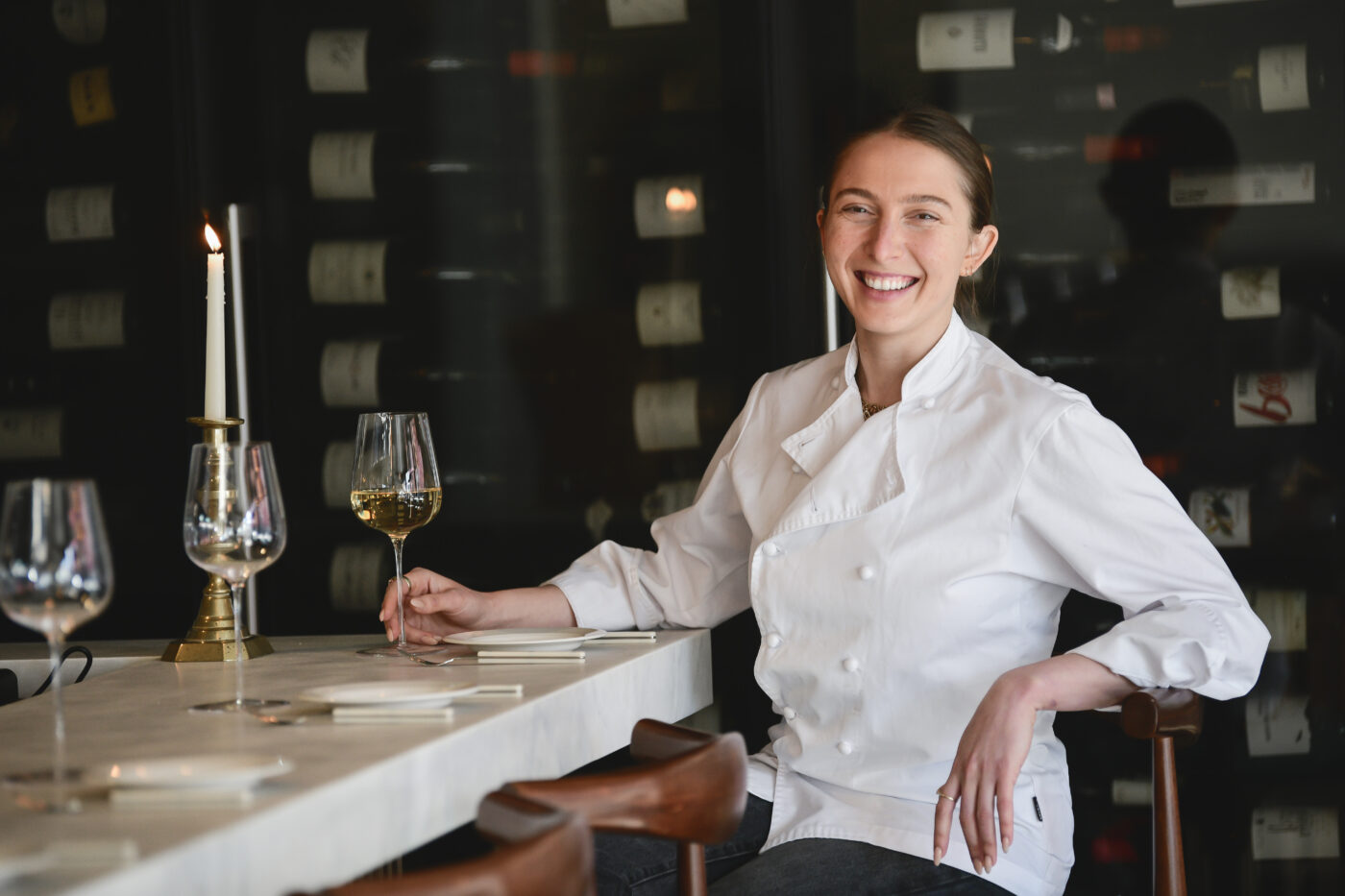Chef Orianne Shapira is the Executive Chef of Eyal Shani‘s Michelin-starred restaurant Shmoné and Shmoné Wine in NYC. We had the opportunity to speak to Chef about her culinary journey, her favorite dishes and ingredients at Shmoné, and her goals for the future. Read the full interview below! Be sure to follow her on Instagram.
Can you share your culinary journey and how it led you to become the Executive Chef at Shmoné?
My culinary journey began at home, cooking beside my dad. We didn’t just make everyday meals—we went all out with elevated dishes like crab bisque and pâté. I was fascinated by the process from a young age and found myself flambéeing bananas at eight years old! After finishing my military service, I was torn between two passions: design and food. I decided to enroll in pastry school, which allowed me to marry the structure of design with the creativity of cooking. I got my first job at The ShowRoom Bakehouse in Tel Aviv, where I ran the bakery. In 2019, I relocated to New York City to attend the Institute of Culinary Education. I initially sought out pastry roles, but when I interviewed at HaSalon, I was asked if I knew how to hold a knife; I said yes—and the rest is history. I began working as a cook at HaSalon, transitioned to North Miznon during the COVID-19 pandemic, and returned to HaSalon as a sous chef when it reopened. Eventually, I was promoted to Executive Chef and led the kitchen there for two years before joining Shmoné in January 2025.
You were interested in cooking from a young age. What initially intrigued you about it and inspired you to become a chef?
Cooking has always felt like second nature to me. It’s something I’ve done for as long as I can remember. Chef Eyal Shani was a major influence for me growing up – I actually dined at his restaurant on my 15th birthday and my dad served in the army with him, so it feels like a full-circle moment serving as an executive chef at his restaurant.
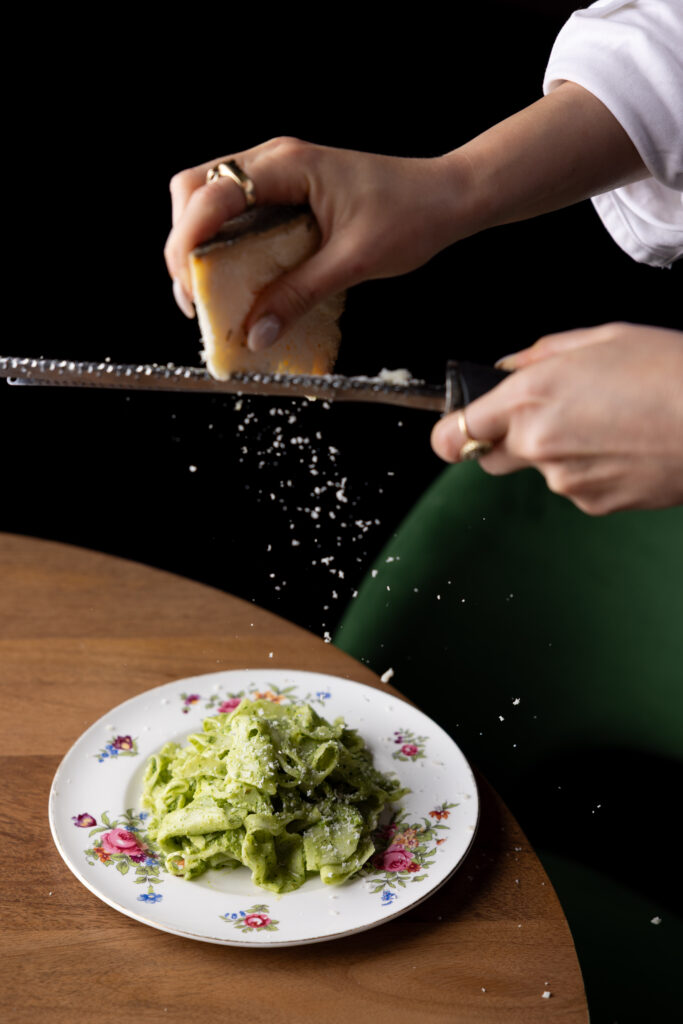
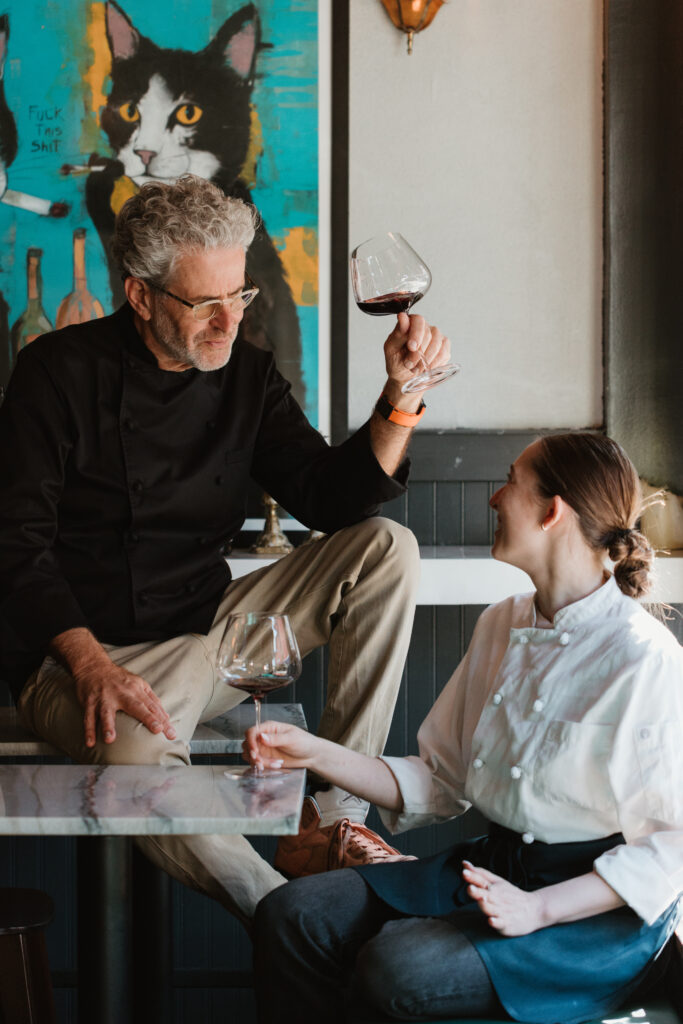
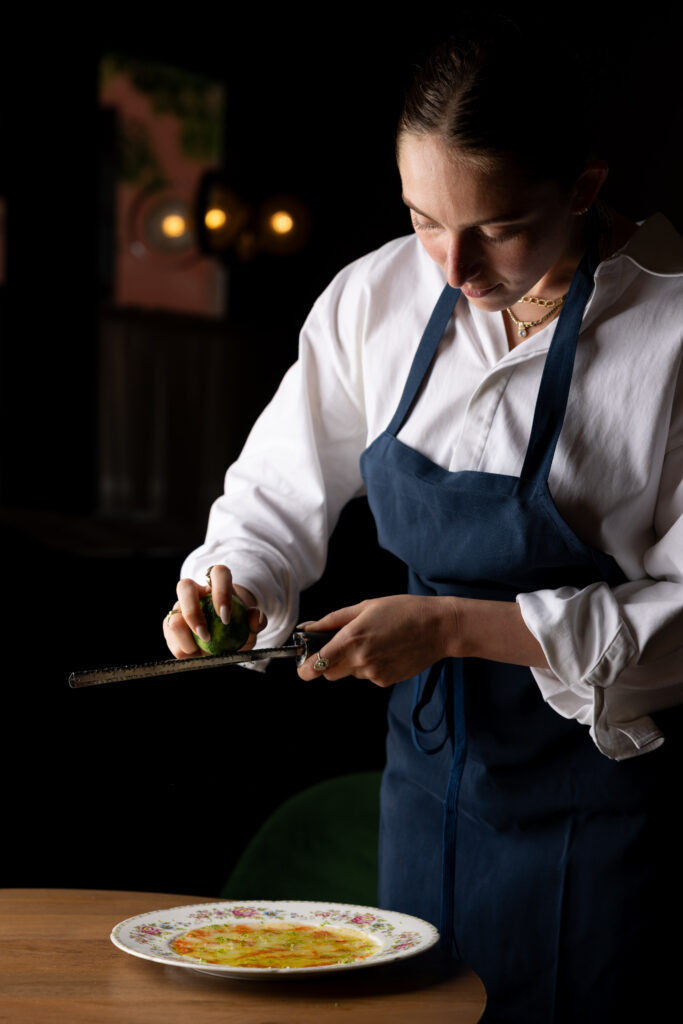
In addition to culinary arts, you were also a professional dancer for 15 years. Are there any similarities between dancing and cooking? Do your years as a dancer ever inform your culinary artistic expression?
There’s a beautiful sense of movement in the kitchen that mirrors dance—how you interact with food, the rhythm of cooking, and the act of plating a dish. Dance instilled a deep sense of discipline and commitment in me, which is essential in the culinary world. It taught me how to dedicate myself to something incredibly demanding, yet I keep showing up every day out of love. This is the mindset that I’ve applied as a chef that has driven me to success.
The cuisine at Shmoné features highly seasonal ingredients with dishes that are constantly evolving with the ingredients and the market. What are some of the ingredients you’re featuring right now?
Right now, we are in the midst of spring, and our menu reflects just that. One of the standout dishes is our Zucchini Lollipops—blossoms filled with homemade ricotta using Ronnybrook Farm dairy, paired with ramp pesto made from my favorite finds at Norwich Meadows Farm. They’re gently fried and served over yogurt with more ramp pesto and tomato foam. It’s a fan favorite and sells out fast. We also offer a spring greens dish featuring spinach, broccolini flowers, and bok choy, wilted with white onions and topped with Japanese Negi scallions, all served over a yogurt base. Morels are in season and featured in a special dish, and our Shrimp Carpaccio is another seasonal favorite—we only get these sweet, delicate spot prawns from May through late June.
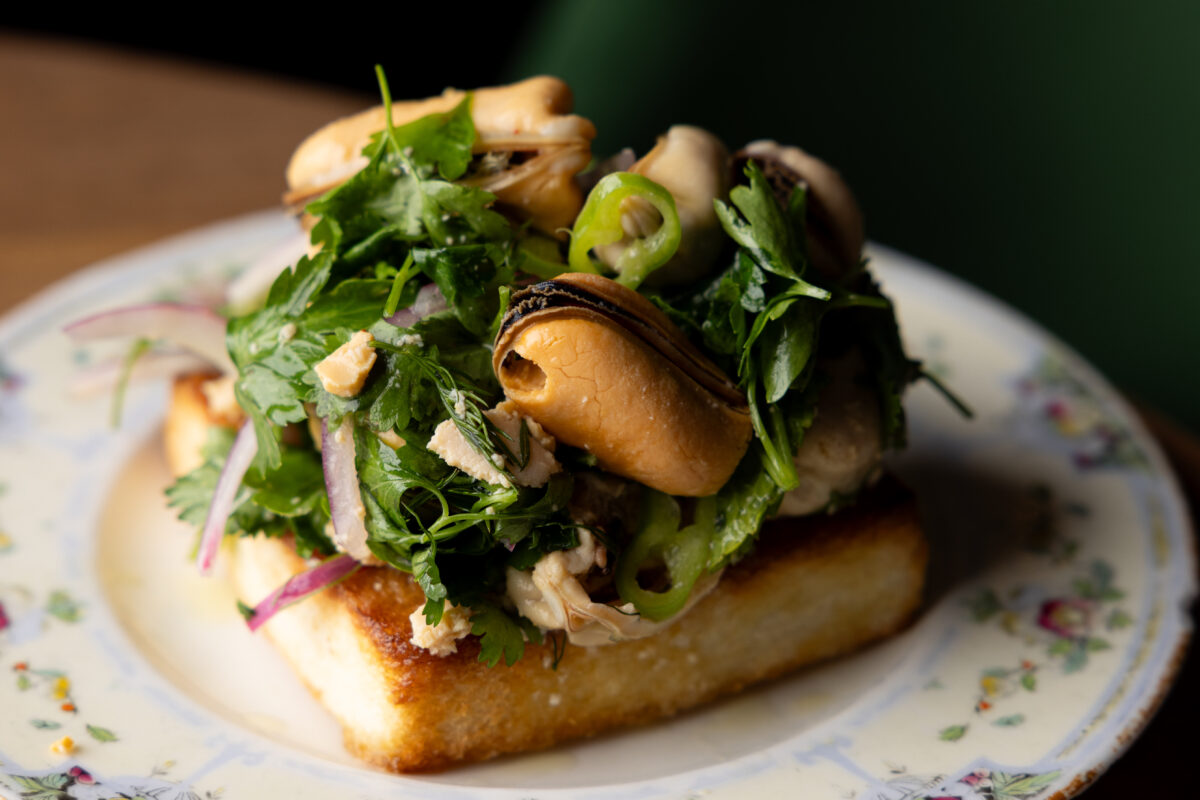
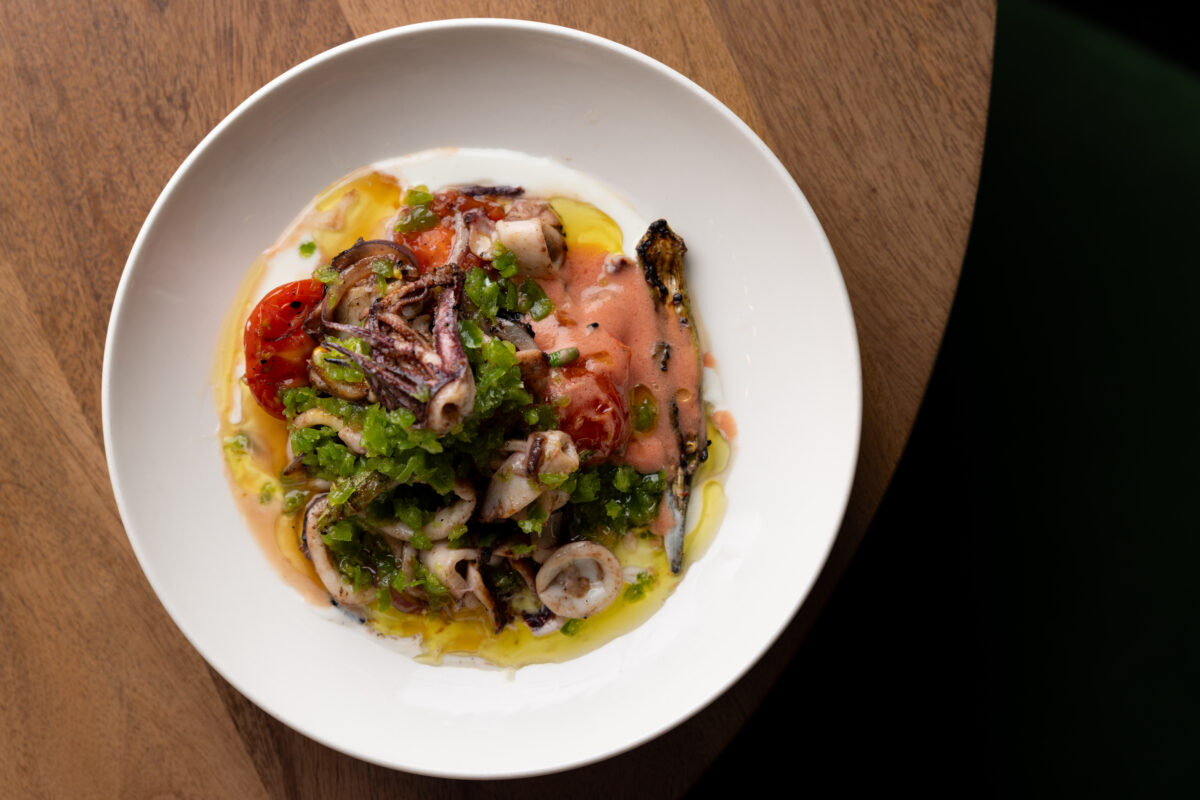
What is one of your favorite dishes on the menu and why?
The Golden Veal Cheek is my personal favorite. It’s slow-cooked overnight with caramelized onions, which I love. The veal cheek has this gelatinous fat that melts in your mouth, creating the perfect contrast with the sweetness of the onions. The portion size is just right—rich but satisfying. I suggest pairing it with our sesame bagel. That’s my go-to bite after service.
Shmoné prides itself on offering chefs a tabula rasa—a blank slate—for expressing their creativity. How does this affect the culture of your kitchen and the way you approach leadership with your team?
The blank slate philosophy at Shmoné opens the floor for cross-collaboration and creative incubation. I encourage my team to bring their ideas and inspirations to the table. It promotes open communication and gives everyone a sense of ownership in what we create together.
Tell us about one of your proudest accomplishments so far.
I am currently living in it as the executive chef of a Michelin-starred restaurant—especially one owned by Eyal Shani—at just 28 years old.
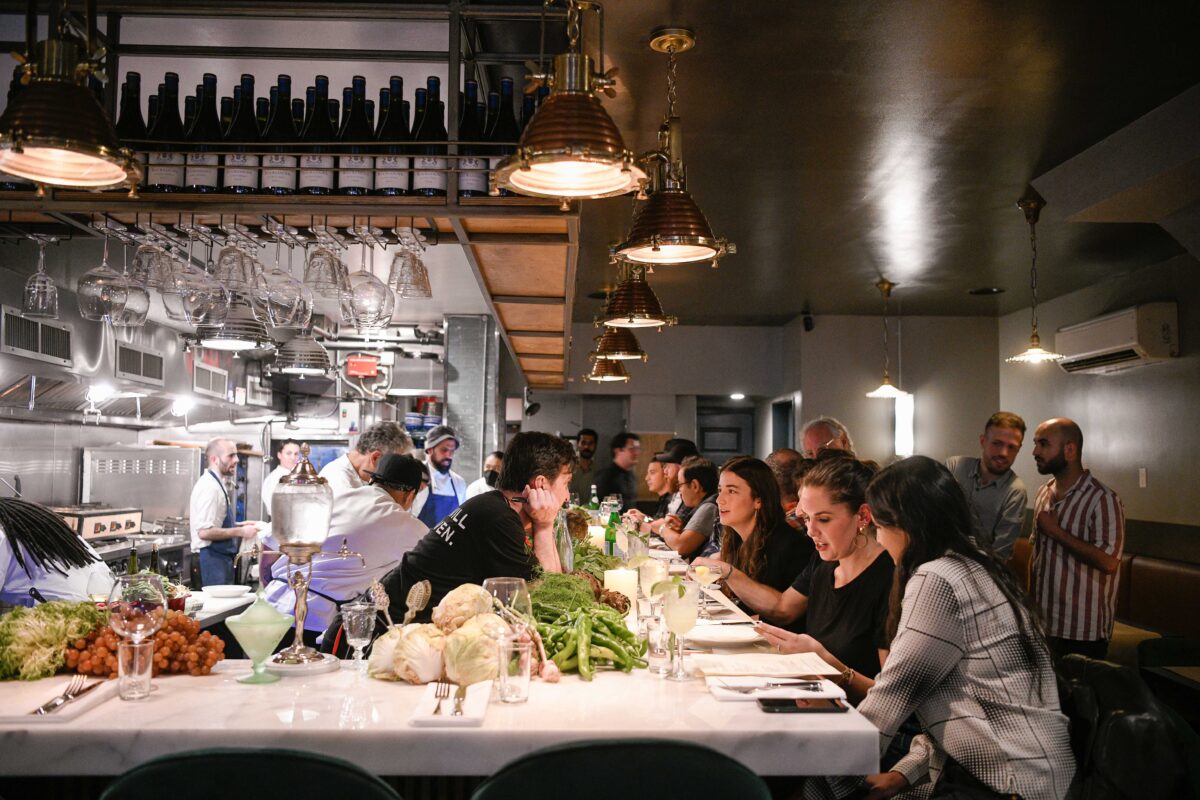
What are some culinary goals you have for the future?
My dream is to one day own a farm in Italy where I can make my own cheese, grow my own vegetables, and run a bed and breakfast. I imagine preparing personalized menus for guests using the freshest ingredients right from my garden. Eventually, I’d love to open a small restaurant on the property to serve handmade pasta and showcase the simplicity and beauty of Italian cuisine.
Do you have any advice for aspiring chefs who want to work in a Michelin-starred restaurant like Shmoné?
I will encourage aspiring chefs to remain open-minded and continue to embrace creativity and change. Be willing to step outside your comfort zone and learn from experiences that may feel uncertain at first. The best chefs are those who are always curious, continually evolving, and open to being inspired by something new.

